Recently, a new model has emerged that surpasses both in power—FLUX! It generates even more realistic images with a remarkable attention to detail, making it a standout choice in the field.
01 What is Flux?
Flux AI is a cutting-edge text-to-image generation model developed by Black Forest Labs, a team composed of former members of the Stable Diffusion project. This new model is specifically designed for advanced AI-powered image creation and is known for its exceptional visual quality, precise prompt adherence, diverse artistic styles, and capability to handle complex scenes.
Key Features and Versions of Flux
- FLUX.1 [Pro]
- A closed-source version tailored for commercial use.
- Offers state-of-the-art image generation performance.
- FLUX.1 [Dev]
- An open-source guided distillation model.
- Designed for non-commercial applications.
- FLUX.1 [Schnell]
- A lightweight, fast version optimized for local development and personal use.
Innovative Architecture of Flux
The Flux AI model incorporates a hybrid architecture that blends multimodal processing capabilities with a parallel diffusion-based Transformer mechanism. With an expanded scale of up to 12 billion parameters, it delivers unparalleled detail and flexibility. The model employs a novel training approach called Flow Matching, a generalized method well-suited for various scenarios, including diffusion processes.
This combination of technical innovation and practical flexibility makes Flux AI an attractive option for both individual creators and businesses.
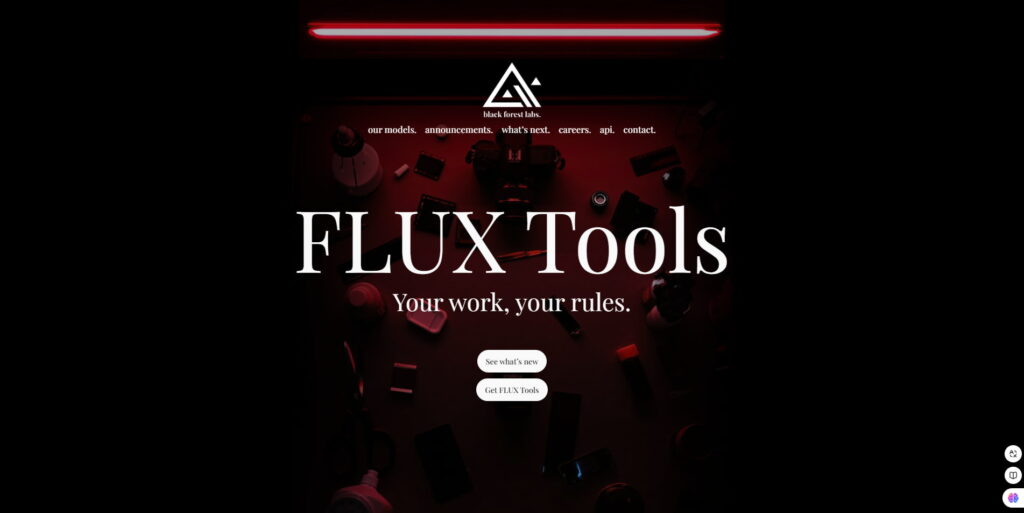
Official website display picture sample:

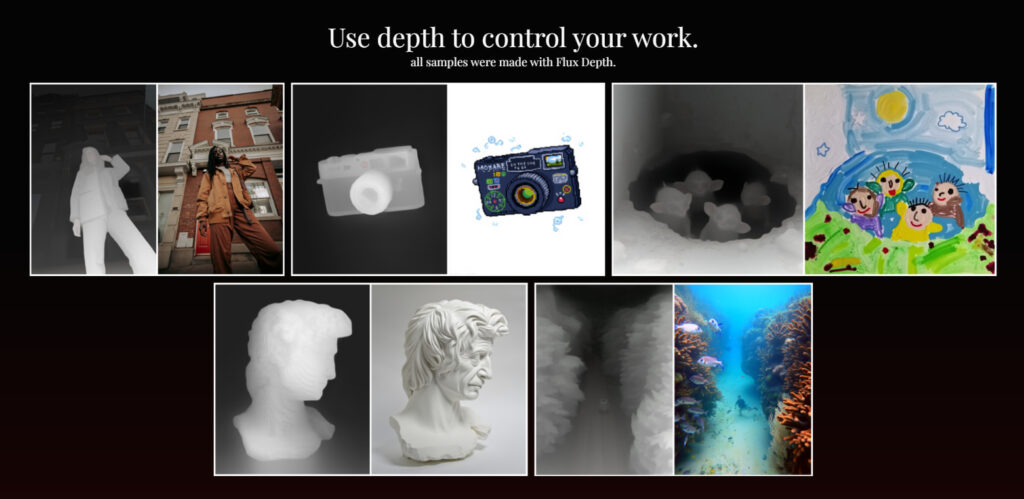
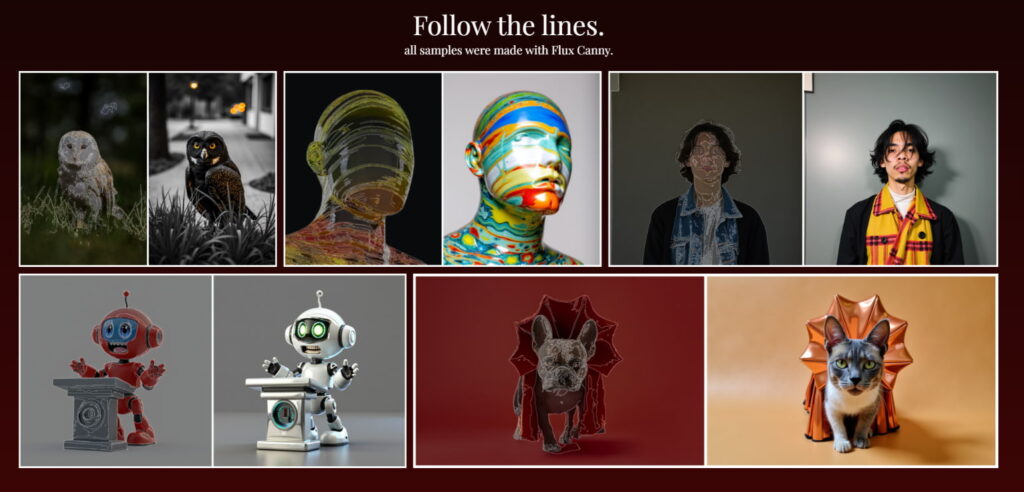

02 Comparison of Flux, Midjourney, and Stable Diffusion
Image Quality
- Flux: Excels in generating high-resolution, detail-rich images without the need for additional plugins. It performs exceptionally well in complex scenes and human anatomy, particularly hands.
- Midjourney: Known for its artistic styles and high-quality outputs. It has a strong focus on creativity and diversity in visual aesthetics.
- Stable Diffusion: Produces realistic images, making it ideal for projects requiring a high degree of realism.
Speed and Efficiency
- Flux: Provides fast image generation, especially with the Schnell variant, making it ideal for rapid prototyping and iterative design. Outputs multiple styles seamlessly without additional downloads.
- Midjourney: Speed isn’t a highlighted feature, and as a cloud-based commercial tool, there may be queuing delays.
- Stable Diffusion: Slower compared to Flux but offers more control during image optimization.
Handling Complex Scenes
- Flux: Demonstrates superior capabilities in rendering complex compositions, aided by its advanced architecture. Can generate text-containing images, suitable for poster-level designs with accurate prompts.
- Midjourney: Handles complexity well but might require several iterations to achieve the desired result.
- Stable Diffusion: Limited in handling intricate scenes and may need post-processing or plugins to improve results.
Human Anatomy Rendering
- Flux: Particularly strong in rendering human anatomy, delivering detailed and accurate hand representations.
- Midjourney: Focuses more on artistic human figures rather than anatomical precision.
- Stable Diffusion: Struggles with human features, requiring plugins or manual corrections for acceptable results.
Flexibility and Integration
- Flux: Offers multiple variants for different use cases, balancing open-source access with professional-grade models.
- Midjourney: Limited in customization due to its commercial nature.
- Stable Diffusion: Highly customizable, thanks to its open-source model and active community contributions.
Open-Source vs. Commercial
- Flux: Offers open-source and proprietary options, encouraging community innovation while serving professional needs.
- Midjourney: Fully commercial, focused on providing a streamlined service.
- Stable Diffusion: Fully open-source, with ongoing enhancements from an active community.
Specific Applications
- Flux: Best for projects needing high detail and complex scene accuracy.
- Midjourney: Ideal for creative and artistic endeavors, especially those prioritizing style and originality.
- Stable Diffusion: Suitable for outputs requiring realistic rendering and precise control.
In summary, Flux AI offers several distinct advantages over other text-to-image models like Midjourney and Stable Diffusion:
- Superior Detail and Visual Quality
- Flux produces more intricate and visually impressive images, excelling in complex scenes and maintaining realism in outputs.
- Accurate Text Support
- Flux can generate images with highly accurate and complete text elements, making it ideal for applications like posters and infographics.
- Realistic Human Anatomy
- Especially skilled at rendering human hands and anatomy without errors, Flux ensures outputs align closely with real-world proportions.
- Diverse Style Support
- Flux inherently supports a wide variety of artistic styles without relying on additional models or plugins.
- Efficient Prompt Handling
- Unlike some models requiring negative prompts for fine-tuning, Flux can achieve accurate results using positive prompts alone.
The key factor behind Flux’s superiority lies in its training parameters. Flux’s model, starting with 12 billion parameters, significantly surpasses the size of Stable Diffusion 3 (8 billion parameters). This enhanced scale allows Flux to generate richer and more accurate visuals. Furthermore, Flux’s single model size of 23 GB highlights its robust capacity, reinforcing its position as a powerful and versatile tool for AI image generation.
03 Flux AI model
The Flux AI model is divided into three main versions, each tailored to specific use cases and user needs:
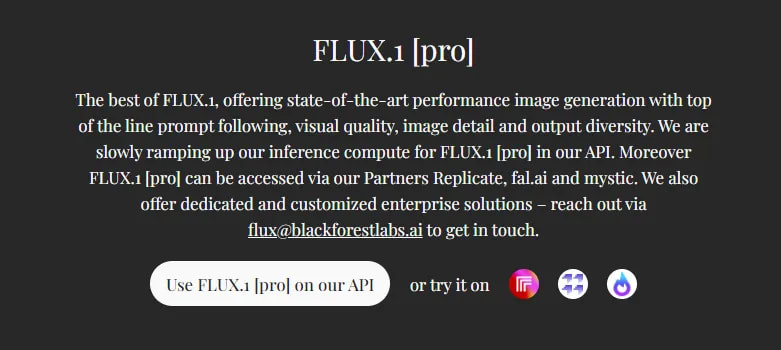
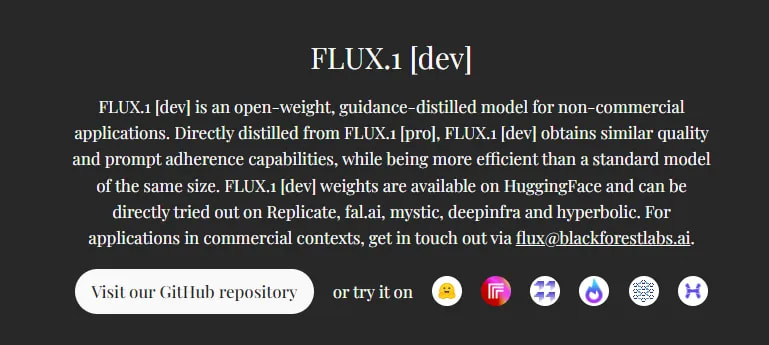
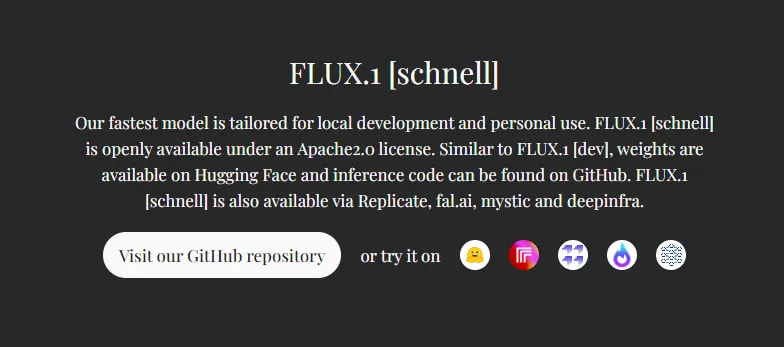
|Model|Constitute|Instructions| |-|-|-| |Flux Pro||| |Dev|fp8|It works best for personal use| ||fp16|| |Schnell|fp8|The memory usage is 14GB, which is slightly worse than DEV| ||fp16|| |GGUF|Q2-Q8|Divided according to the capacity size, according to personal needs to use, the memory occupies 4-12G| |NF4|Set CLIP, VAE, T5 encoders|Basic 8GB memory|
Note: If using GGUF and NF4, additional plugins are required:
GGUF:https://github.com/city96/ComfyUI-GGUF
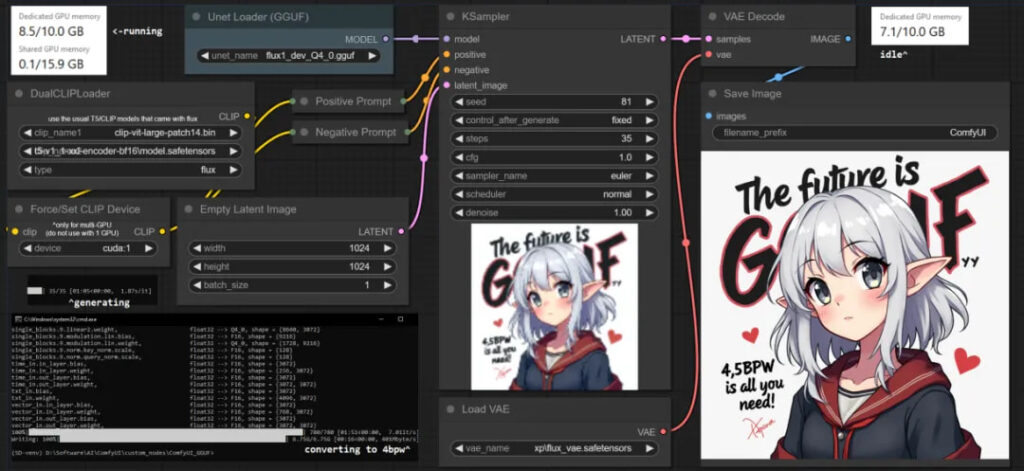
NF4:https://github.com/comfyanonymous/ComfyUIbitsandbytesNF4
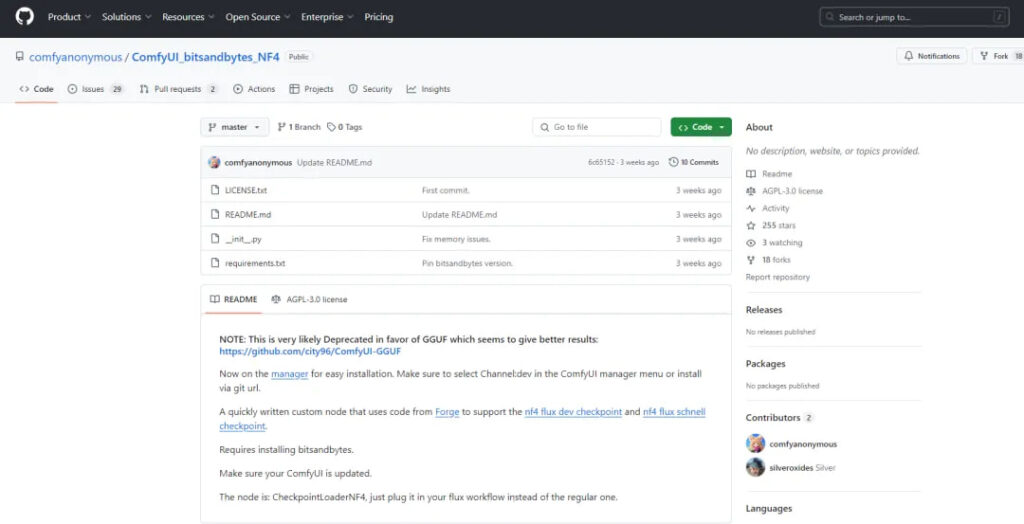
04 How to install Flux?
Prerequisites:
- ComfyUI installed: Make sure it’s the latest version.
- System Requirements: At least 8GB VRAM (24GB recommended for better performance) and 30GB of free storage space.
Install:
1.Enter the official website:https://huggingface.co/black-forest-labs/FLUX.1-dev
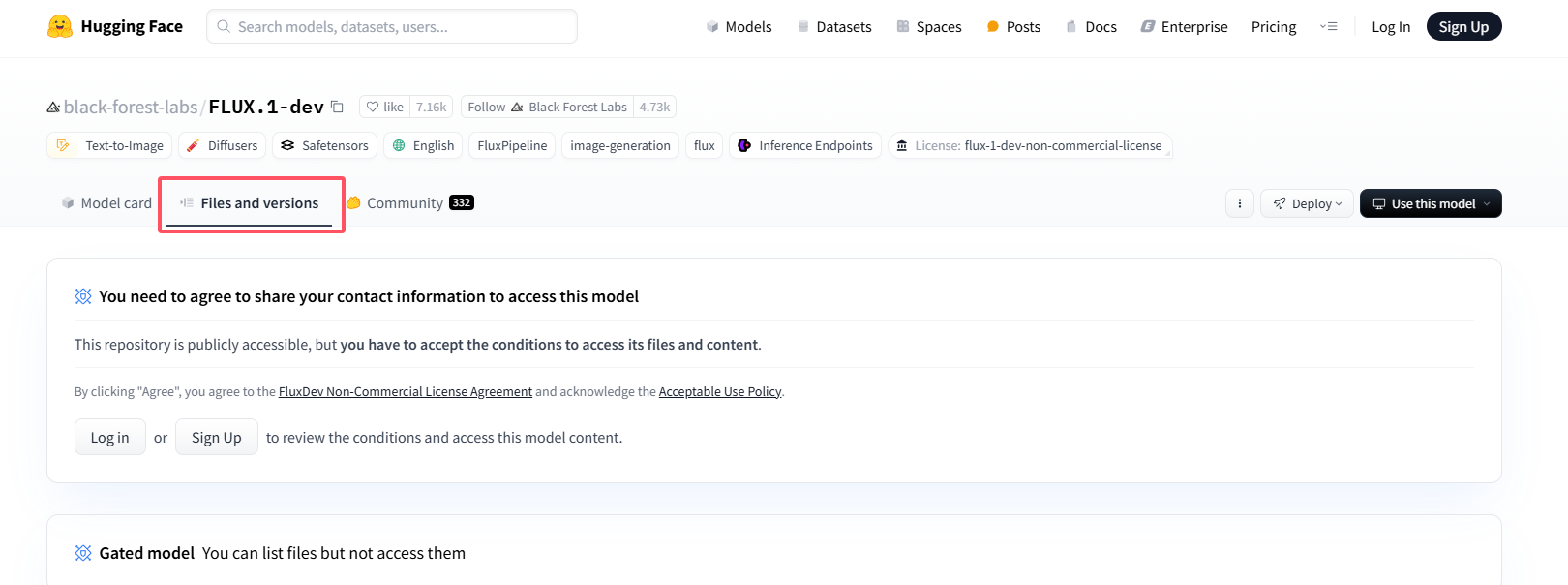
Download the following two files:
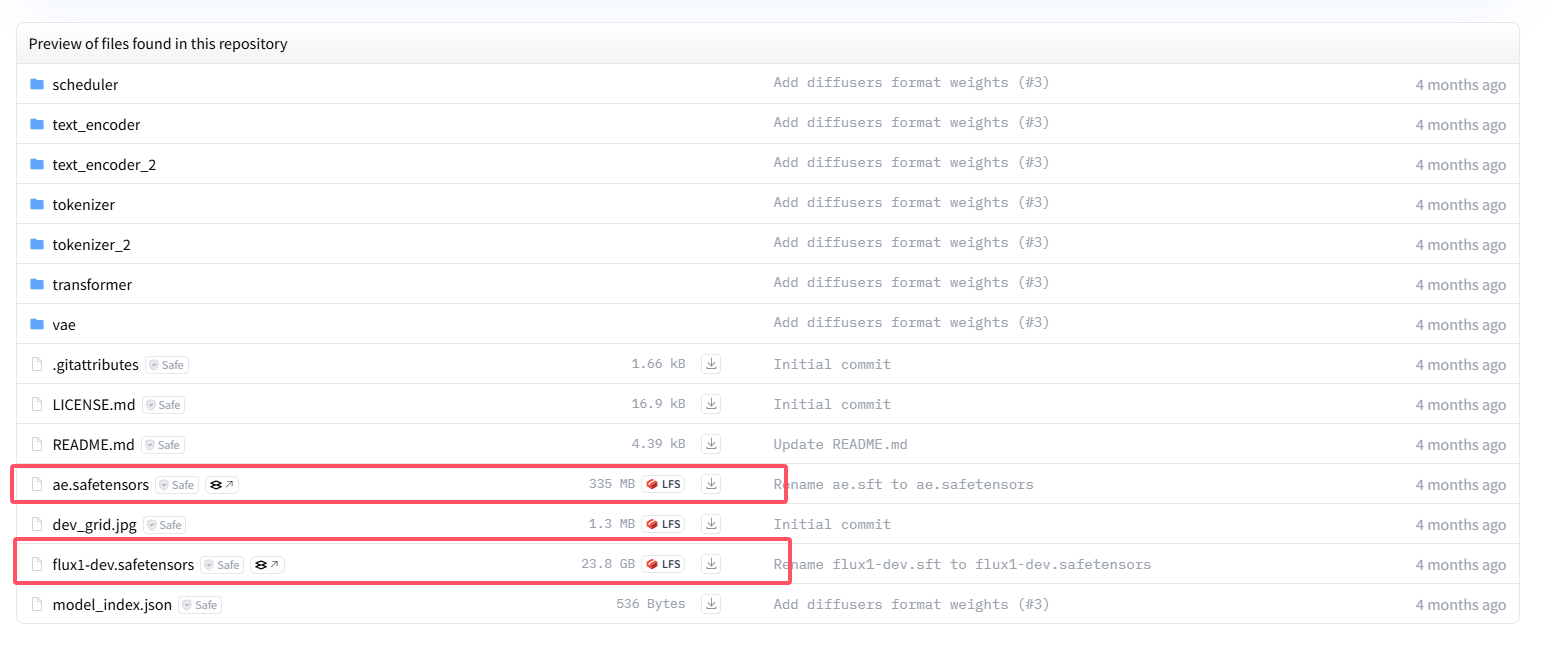
2.Download the clip file,go to comfyui’s github home page to find flux:https://github.com/comfyanonymous/ComfyUI_examples/tree/master/flux
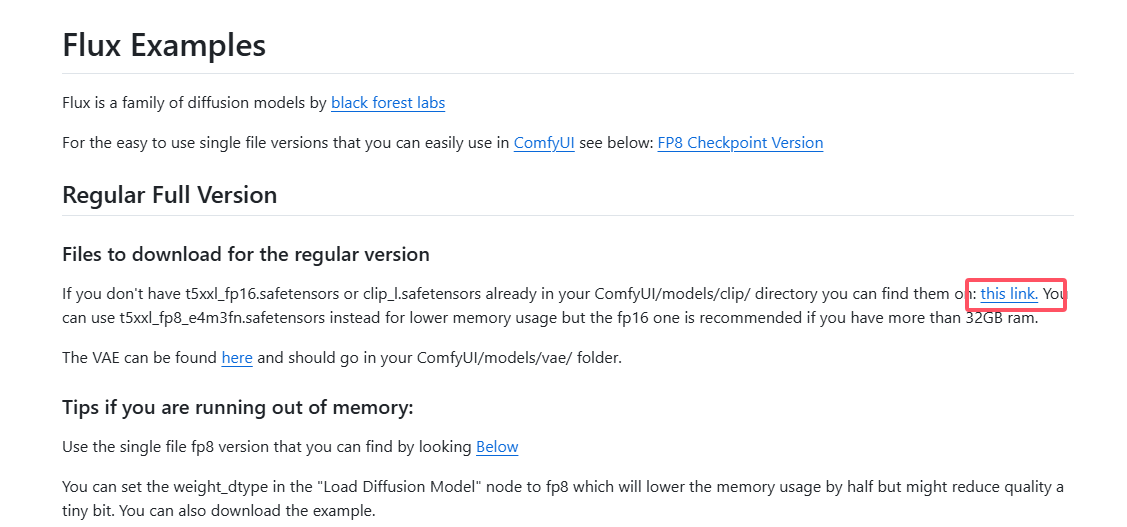
Download the following three files:

3.File location

4.Other resources include controlnet and lora, on the xlab-ai home page:https://huggingface.co/XLabs-AI
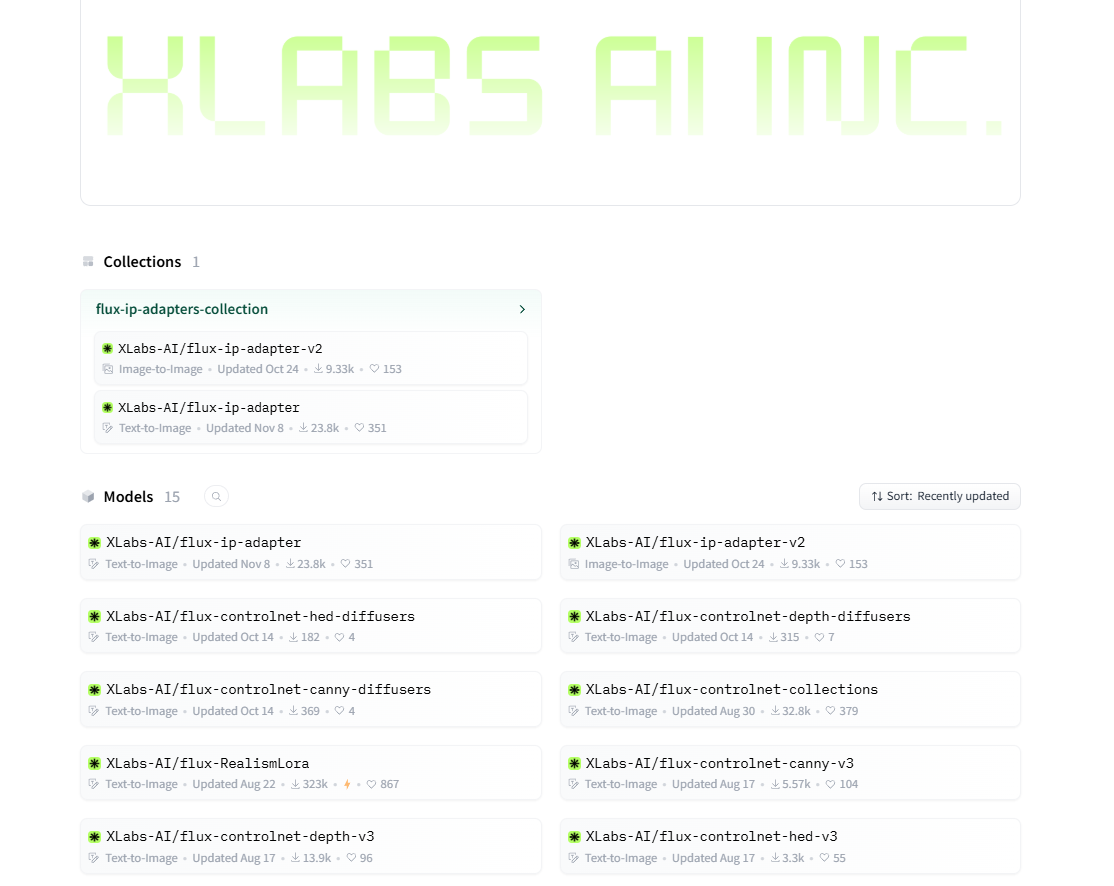
5.System memory Settings
When using models that consume significant memory, it’s recommended to enable system virtual memory to prevent out-of-memory issues. Here’s how to configure it:
- Open System Settings:
- On Windows, search for “Advanced System Settings” in the Start menu or access it via Control Panel > System > Advanced System Settings.
- Navigate to Performance Options:
- In the System Properties window, go to the Advanced tab.
- Under the Performance section, click Settings.
- Adjust Virtual Memory:
- In the new window, switch to the Advanced tab again.
- Under Virtual Memory, click Change.
- Enable Automatic Management:
- Check the box for “Automatically manage paging file size for all drives”.
- If this is not suitable, manually set a custom size:
- Choose a drive and select Custom Size.
- Enter an initial size and maximum size (e.g., 1.5x to 2x your RAM size).
- Apply and Restart:
- Click OK to save changes, then restart your computer for the settings to take effect.
05 How to use Flux quickly?
The official workflow is given, just drag and drop the official github case image to comfyui. See picture naming corresponding to use.
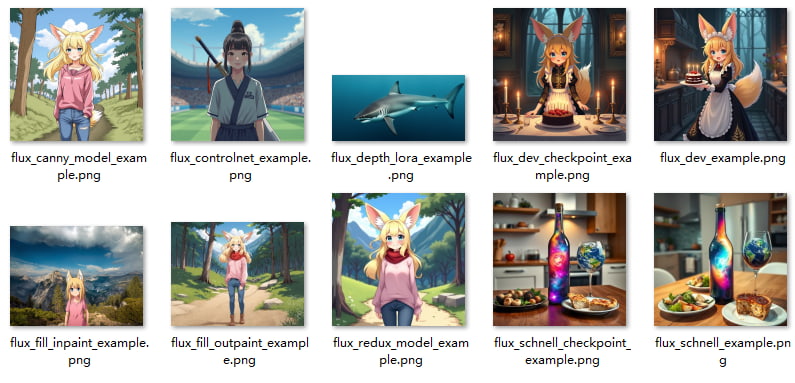
Drag the image directly into the Comfy UI work interface to get the corresponding workflow:

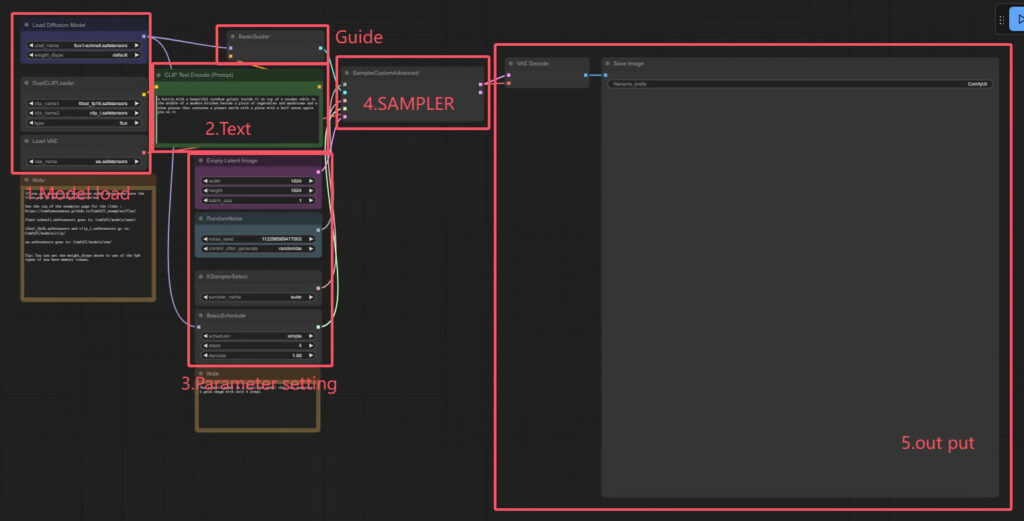
Flux schnell example is the simplest and can be plotted in 4 steps.
To start simple, try the following prompt words in the fluxschnellexample workflow:
Realistic style, little girl standing by an ice cream truck, side view, wearing a summer dress, reaching for an ice cream cone. The truck has an ‘Ice Cream’ sign. truck window, wheels, and the girl’s smile are clearly visible,background includes a sunny street, green trees, and flower beds. Cinematic lighting, rich details:

(1) Accurate experience of the words on the blackboard
(2) The hand structure of the figure is normal
(3) The texture effect conforms to the real style of the prompt word
(4) High drawing efficiency, no waiting sense, consistent with the prompt words
In general, in addition to the large model requiring a strongly configured computer, flux can not make much mistake in the effect of smaller models, which is enough for ordinary we-media applications and scheme creativity.
In addition to the simple addition of lora, etc., if you are familiar with comfyui, adding nodes to enlarge and increase details, and even using advanced applications such as controlnet can produce more and better results.
More Tutorial
If you’re excited to dive into the world of AI image generation, you’ve come to the right place! Want to create stunning images with Midjourney? Just click on our Midjourney tutorial and start learning! Interested in exploring ComfyUI? We’ve got a detailed guide for that too. Or maybe you’re curious about WebUI? Our WebUI tutorial has you covered. Each guide is designed to be simple and fun, helping you master these powerful tools at your own pace. Here, you can learn all the AI knowledge you need, stay updated with the latest AI trends, and let your creativity run wild. Ready to start? Let’s explore the exciting world of AI together!
Share this content:
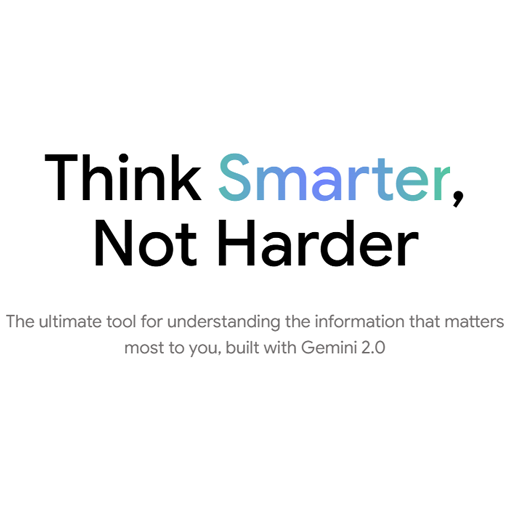


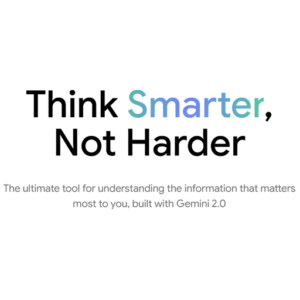
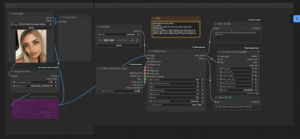






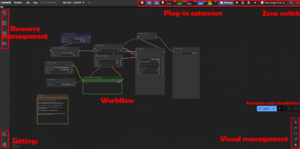

2 comments